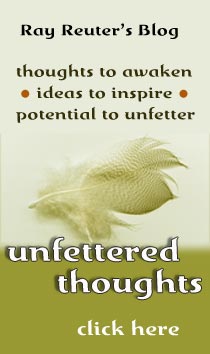The Trust Factor: Creating Win/Win Relationships
Dramatically increase your effectiveness
with others as you learn the principles and skills of trust and
interpersonal dialogue.
"We can build our relationships on fear,
obligation, or trust. However, only a foundation of trust results
in the collaboration and goodwill necessary to achieve our peak
performance."
Roger K. Allen, Ph.D.,
The Center for Organizational Design, Inc.
When trust is absent, relationships are characterized by an adversarial
attitude: me vs. you; us vs. them. Rather than goodwill, there are
deep and hidden animosities. Respect is lost and our performance
is compromised as our energies go into manipulation and protection
rather than working together towards a shared vision.
What You Will Gain:
In this program, you will learn how to interact
with others in ways that build trust and win/win outcomes. Specifically,
you will:
- Learn the core elements of trust.
- Identify how we engage in "collusive," weakening patterns
of relating to others.
- Experience a "change of heart" and know how to break
out of collusive patterns.
- Come to view others in a way that promotes unity, trust, and
goodwill.
- Understand the three phases of interpersonal dialogue and practice
the dialogue skills.
- Commit to interacting with others in strengthening rather than
weakening ways.
- Develop the ability to confront poor performance and behavior
problems.
Structure and Format:
The Trust Factor consists of eight modules (two
to three hours each). The training comes alive as you participate
in experiential exercises and role-playing that help you internalize
the principles and skills that are taught and ensure that participants
translate the principles into a personal plan of action.
This program can be taught to a large group or
even a single leader with the trainer acting as a personal coach.
The number of participants, structure and format can all be tailored
to fit the needs of your organization.
Program Objectives
- Understand the core elements of trust and how to build trust
by being trustworthy
- Identify your weakening, collusive patterns of relating to others
- View others in a way that promotes unity, trust, and goodwill
- Learn the four styles of communicating and influencing others
- Understand the three phases of interpersonal dialogue
- Practice the dialogue skills
- Develop the ability to confront poor performance and behavior
problems
- Learn how to interact with others in ways that strengthen
Module 1: The Trust Imperative
- Appreciate the need for a collaboration in our interdependent
society
- Learn the definition and key elements of trust
- Evaluate the consequences of high and low trust within an organization
- Understand the importance of being trustworthy in building trust
and rate your trustworthiness
- Receive feedback from others about your personal trustworthiness
Module 2: Collusion
- Understand the dynamic of collusion
- Be able to identify and diagram collusive relationships
- Write a personal story of collusion
- Evaluate the consequences of collusion
Module 3: A Change Of Heart
- Learn the four reasons we engage
in collusion
- Identify payoffs and prices from
our collusions
- Understand the folly of trying to
get others to change
- Learn the two ways of being in our
relationships with others
- Experience a change of heart towards
others
- Learn and practice the skill of creating
safe and trusting conditions
Module 4: Face-to-Face Communication
- Explore the role of communication in interpersonal relationships
- Learn about alternative ways of communicating/ influencing others
- Identify your "native tongue" or preferred style of
communicating
- Understand the consequences of an absence of dialogue
Module 5: Interpersonal Dialogue: Core Principles
- Understand the definition and meaning
of interpersonal dialogue
- Learn a model and the core principles
of dialogue
- Understand why mutuality is the "bedrock"
of dialogue
- Learn how to create a pool of shared
understanding
- Know how to solve problems in a win-win
way
- Do a self-assessment of your skills
in interpersonal dialogue
- Receive feedback from others regarding
your dialogue skills
Module 6: Interpersonal Dialogue: The Steps
- Learn the steps of dialogue
- Practice the skills of mutuality
- Learn and practice various inquiry
skills
- Understand the meaning and guidelines
of advocacy
- Know how to identify and share your
left-hand column
- Practice using the skills of dialogue
- Identify actions to improve your
ability to engage in dialogue
Module 7: Harnessing Harmful Behavior
- Learn to confront behavior that fails
to meet your expectations
- Understand the importance of discipline
and conformity in building trust
- Develop a set of non-negotiables
for those whom you lead
- Practice the skill of harnessing
harmful behavior
- Apply the skill to back-home situations
Module 8: Strengthening Our Relationships
- Understand the characteristics and
consequences of co-dependency
- Know the difference between responsibility
for and responsibility to another
- Learn a credo for your relationships
- Understand what you do that weakens
others when you intend to help
- Learn the valuing process as a skill
to strengthen others
- Evaluate what you do to strengthen
others in your relationships
- Understand how contracting can be
used to strengthen yourself and others
Are you ready? Unfetter the potential
in your people, your business – and yourself.
Email info@unfetteredpotential.com
or call 913-851-2430 |

